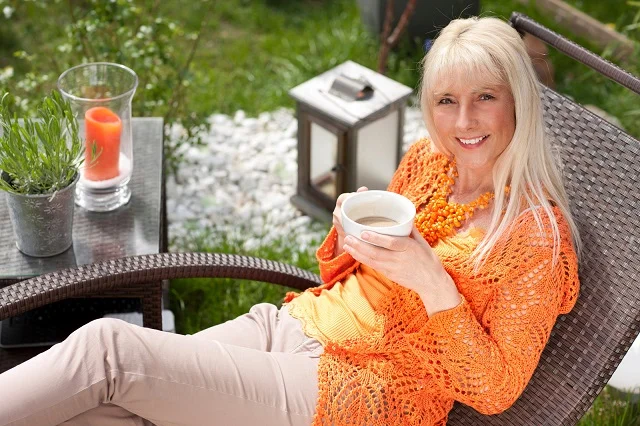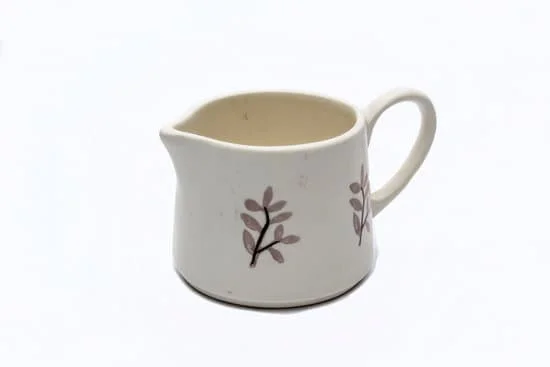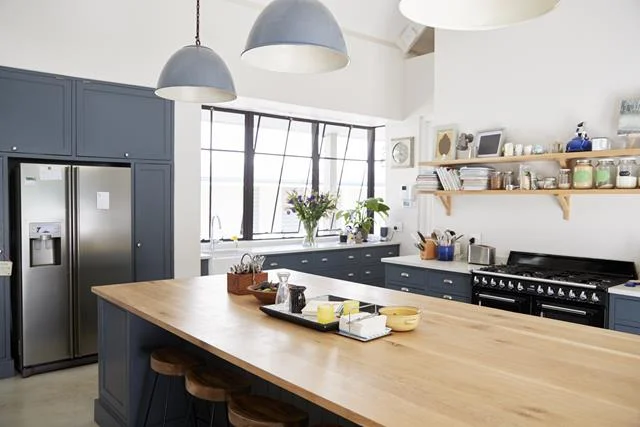Are you looking to learn how to decorate a cake at home with cream? Cake decorating can be a fun and creative way to add a personal touch to your sweet treats, and using cream as a decoration can take your cakes to the next level.
In this article, we will explore the step-by-step process of decorating a cake with cream right in the comfort of your own kitchen. From choosing the right type of cream to adding finishing touches, we’ll cover everything you need to know to create beautifully decorated cakes at home.
When it comes to decorating a cake with cream, choosing the right type of cream is crucial. In this section, we will discuss the different options available and help you determine which one will work best for your desired designs. We will also cover essential tools and equipment needed for cake decorating with cream and provide tips on where to find them.
Once you have all the necessary tools and ingredients, it’s time to start preparing the cake for decorating. We will walk you through the step-by-step process of getting your cake ready for decoration, including how to properly layer and frost it. Whether you’re a beginner or looking to improve your skills, this article will guide you through every stage of creating stunning cream-decorated cakes at home.
Choosing the Right Type of Cream for Decorating
When it comes to decorating a cake at home with cream, the type of cream you use can make all the difference in achieving the perfect texture and consistency for your designs. The most commonly used options for cake decorating with cream are buttercream and whipped cream.
Buttercream is known for its smooth and creamy texture, making it an ideal choice for creating intricate designs and decorations. It holds its shape well, making it perfect for piping flowers, borders, and other detailed designs on cakes. On the other hand, whipped cream is lighter and more delicate, making it a great option for creating soft swirls, rosettes, and simple decorations with a subtle, airy finish.
For those looking to create dairy-free or vegan options, there are also non-dairy whipped toppings available that can be used for cake decorating. These alternatives provide similar textures to traditional whipped creams and are perfect for those with dietary restrictions or preferences.
When choosing the right type of cream for decorating your cake at home, consider the flavor profile you want to achieve as well as the level of detail and intricacy in your designs. Experimenting with different types of cream will help you find the perfect fit for your specific cake decorating needs.
To sum up:
- Buttercream: Ideal for intricate designs and detailed decorations
- Whipped Cream: Perfect for soft swirls and delicate finishes
- Non-Dairy Whipped Toppings: Great alternative for those with dietary restrictions or preferences
Essential Tools and Equipment Needed for Cake Decorating With Cream
When decorating a cake at home with cream, having the right tools and equipment is essential to achieve professional-looking results. Here are some of the essential items you will need:
Pastry Bags and Tips
One of the most important tools for decorating a cake with cream is a set of pastry bags and tips. These come in various sizes and shapes, allowing you to create different designs and patterns on your cake. For beginners, a basic set with a few different tips is sufficient, but as you gain more experience, you may want to expand your collection.
Offset Spatula
An offset spatula is another essential tool for cake decorating. This angled spatula allows you to spread and smooth the cream on the cake’s surface, ensuring an even and professional finish. It also comes in handy for lifting and placing delicate decorations on the cake.
Cake Turntable
A cake turntable is a rotating stand that makes it easier to decorate all sides of the cake without having to constantly move it around. This tool is especially useful for smoothing out the cream and creating intricate designs.
Palette Knife
A palette knife, also known as an icing smoother, is used to achieve clean lines and smooth surfaces when decorating a cake with cream. It is particularly useful for creating sharp edges on the sides of the cake.
In addition to these tools, other items such as parchment paper, a bench scraper, and a cake leveler are also helpful for achieving professional results when decorating cakes at home with cream. By having these essential tools on hand, you can elevate your home baking game and create beautifully decorated cakes that are sure to impress.
Step-by-Step Guide to Preparing the Cake for Decorating
When preparing a cake for decorating with cream, it’s important to start with a well-baked and cooled cake. Here are the essential steps to follow before you begin decorating:
Leveling the Cake
Start by leveling the top of your cake using a serrated knife or cake leveler. This will ensure that the surface is even and provide a stable foundation for decorating.
Applying a Crumb Coat
To prevent crumbs from getting into your final layer of frosting, it’s essential to apply a crumb coat. This is a thin layer of frosting that seals in any loose crumbs on the cake’s surface. Use an offset spatula for this step and then chill the cake for about 15-20 minutes to set the crumb coat.
Frosting the Cake
Once the crumb coat has set, you can proceed to frost the cake with your chosen cream. Start by adding a generous amount of frosting on top of the cake and use an offset spatula to spread it evenly over the top and sides. Make sure to work quickly and smoothly for best results.
By following these steps, you’ll be well-prepared to begin decorating your cake with cream, whether you’re piping designs or creating smooth finishes.
Techniques for Piping and Creating Various Designs With Cream
When it comes to decorating cakes at home with cream, mastering the art of piping and creating various designs is essential for achieving a professional-looking result. Whether you’re aiming for simple elegance or intricate designs, using the right techniques can make all the difference in the final outcome of your cake.
To help you get started, here are some techniques for piping and creating various designs with cream:
- Prepare the piping bag: Before you begin piping, make sure to properly prepare your piping bag. Fill it with the desired type of cream and secure the end tightly.
- Practice pressure control: One key to successful piping is controlling the pressure applied to the piping bag. Squeezing too hard can result in thick lines, while not applying enough pressure can lead to uneven or broken lines.
- Experiment with different tips: The type of piping tip you use can greatly influence the design you create. Try out different tips, such as star tips, round tips, or petal tips, to achieve various shapes and textures.
With these techniques in mind, you can start practicing piping and creating beautiful designs on your cakes at home. Remember that practice makes perfect, so don’t be afraid to experiment and try new things.
Lastly, don’t forget that YouTube offers a plethora of tutorials on how to decorate cake at home with cream instructing viewers on where to purchase supplies and which brands are best. Exploring videos for inspiration may offer additional helpful hints for beginner bakers trying their hand at cake decoration techniques. Enjoy this fun creative process.
Tips for Achieving a Smooth and Professional-Looking Finish
When it comes to decorating cakes at home with cream, achieving a smooth and professional-looking finish is essential for creating a visually appealing and professional-quality cake. Here are some tips to help you achieve that perfect finish:
First, start with a well-chilled cake. This will make it easier to work with the cream and prevent it from melting or becoming too soft while you are decorating. You can place the cake in the refrigerator for at least an hour before you begin decorating.
Next, make sure to use the right consistency of cream for decorating. If the cream is too stiff, it will be difficult to spread smoothly on the cake, and if it’s too soft, it may not hold its shape when piped onto the cake. Practice getting the right consistency by adding small amounts of liquid (such as milk or cream) to your cream until you achieve the desired texture.
Additionally, using a turntable while decorating can make a significant difference in achieving a smooth finish. A turntable allows you to easily rotate the cake while applying the cream, making it easier to reach all angles and ensuring an even application of cream around the entire cake.
Incorporating these tips into your cake decorating routine will greatly improve your ability to create beautifully decorated cakes at home with cream. With practice and patience, you’ll be able to achieve a smooth and professional-looking finish on all of your homemade cakes.
Adding Finishing Touches and Embellishments to the Decorated Cake
Once you have finished piping and creating your desired designs with cream, it’s time to add some finishing touches and embellishments to really make your cake stand out. There are various ways you can do this, depending on the theme or occasion for which the cake is being decorated.
One popular option is to add fresh fruits or edible flowers as a colorful and natural embellishment. You can also use chocolate shavings, sprinkles, or edible glitter to add texture and visual interest to the cake. Another creative idea is to incorporate themed cake toppers or fondant decorations that align with the overall design of the cake.
When adding finishing touches, consider the flavor profile of the cake and choose embellishments that complement its taste. For example, if you’re decorating a lemon-flavored cake, adding some candied lemon slices as a garnish can be a delightful addition. Similarly, if your cake has a rich chocolate flavor, consider using chocolate curls or ganache drizzles for a decadent finish.
It’s important to remember that less is often more when it comes to adding finishing touches and embellishments. Overloading the cake with decorations can detract from the overall look and feel. Instead, opt for small but impactful details that enhance the aesthetic appeal of the cake without overwhelming it.
| Embellishment | Suitable Flavors |
|---|---|
| Fresh Fruits | Light and fruity flavors such as lemon or strawberry |
| Chocolate Shavings | Rich flavors like chocolate or coffee |
| Edible Flowers | Natural and earthy flavors such as vanilla or carrot |
| Candied Citrus Peels | Citrusy flavors like orange or lime |
Troubleshooting Common Issues When Decorating With Cream
Decorating cakes at home with cream can be a fun and rewarding experience, but it can also come with its own set of challenges. In this section, we will discuss some common issues that may arise when decorating with cream and how to troubleshoot them.
One common problem that many home bakers encounter when decorating with cream is the cream not holding its shape. This can be frustrating, especially when trying to create intricate designs or piping. One possible reason for this issue could be that the cream is too warm or that the cake itself is warm, causing the cream to melt. To troubleshoot this problem, try placing the cake in the refrigerator for a few minutes to allow the cream to set properly.
Another issue that may arise when decorating with cream is air bubbles forming in the piping bag, which can result in uneven and inconsistent piping. To prevent this from happening, make sure to gently tap the filled piping bag on a flat surface to release any air trapped inside before starting to pipe. Additionally, squeezing out a small amount of cream before piping onto the cake can help to eliminate any remaining air pockets.
Lastly, achieving a smooth and professional-looking finish on a decorated cake can be challenging for some home bakers. Uneven surfaces or visible crumbs can detract from the overall appearance of the cake. To troubleshoot this issue, consider using a crumb coat – a thin layer of cream applied to the cake before adding the final decorative layer – to help seal in any crumbs and create a smooth base for decorating.
Conclusion and Final Thoughts on Creating Beautifully Decorated Cakes at Home With Cream
In conclusion, decorating a cake at home with cream can be a fun and rewarding experience for any amateur baker. Choosing the right type of cream is crucial to achieving the desired consistency and finish, whether it’s whipped cream, buttercream, or cream cheese frosting. Additionally, having the essential tools and equipment such as piping bags, tips, and spatulas can make the decorating process much smoother and more enjoyable.
Following a step-by-step guide to preparing the cake for decorating and utilizing various techniques for piping and creating designs with cream can help ensure a professional-looking finish. It’s important to note that practice makes perfect when it comes to cake decorating, so don’t be discouraged if your first attempt doesn’t turn out as expected. With time and patience, you’ll be able to master the art of decorating cakes at home with cream.
Lastly, adding finishing touches and embellishments to the decorated cake can truly elevate its overall presentation. Whether it’s fresh fruit, edible flowers, or chocolate shavings, these little details can make a big difference in the final appearance of the cake. Overall, decorating cakes at home with cream is a delightful creative outlet that allows you to showcase your personality and style through beautifully decorated confections.
Frequently Asked Questions
How to Decorate a Cake With Cream?
Decorating a cake with cream can be achieved in various ways. You can use a piping bag with different tips to create beautiful designs, such as rosettes, swirls, or borders. Another option is to spread the cream smoothly over the cake for a more minimalist look.
Can I Decorate a Cake With Heavy Whipping Cream?
Yes, you can decorate a cake with heavy whipping cream. In fact, heavy whipping cream is commonly used for cake decorating because it can hold its shape well when whipped and provides a smooth and creamy texture. Just make sure to whip it properly until stiff peaks form.
Which Cream Is Used for Decorating Cake?
The type of cream commonly used for decorating cakes is heavy whipping cream. This type of cream has a high fat content which allows it to hold its shape when whipped and creates stable peaks, making it ideal for creating decorative elements on cakes.
Additionally, stabilized whipped cream or pastry cream can also be used for cake decoration, depending on the desired effect and taste preferences.

Hello, lovely readers! I’m Sheila Collins, and I’m delighted to be your trusted guide on this exciting journey of home improvement, design, and lifestyle. As the founder and editor-in-chief of Home Guide Blog, I’m passionate about all things related to homes, and I’m here to share my knowledge, experiences, and insights with you.





